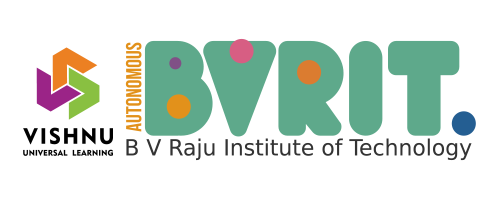Overview.
About Department
The Department of Information Technology was established in the year 2000 and is now recognized as one of the leading departments with infrastructure and facilities to match the very best in the country. The department remains committed towards its mission, which is twofold. One is to provide students with the fundamental knowledge and problem solving skills in IT field required for a fulfilling career. The other goal is to create and disseminate knowledge to improve Research, education and practice in IT. With a team of dedicated, experienced and qualified faculty members, the department has witnessed tremendous growth in academics and research. The department is having combination of both experienced and young faculty; among them five are having Ph.D degrees, who are expertise in research fields of Cloud Computing, AI, Machine Learning, Cyber Security, Data Analytics.
The department is progressing towards setting up of research laboratories and R & D centers. Major research areas include AI, Data Analytics, Cloud Computing, Network Security and Wireless Networks. Regular interaction with software companies has helped the department in maintaining its syllabus abreast with technology and industrial standards. The rigorous learning environment has helped make students job-ready. To further enhance the quality of the programs, the department has academic collaborations with international professors from universities like Binghamton University – State University of New York, Bennet University- Noida etc.
1
Program offered
20
Faculty members
1000+
Students graduated
1000+
Research papers
Programs Offered
B.Tech in Information Technology
180
Intake
M.Tech in Data Sciences
12
Intake
Why Information Technology is a Good Career?
Information Technology or more commonly known as I.T. is the most popular career and the fastest growing industry in the world. There are several success stories about people who chose this field for a career and are now on top of their game. But what is it about I.T. that makes it such a lucrative career choice for up and coming professionals. Here are a few reasons why people who choose Information Technology are successful in their business life.
FASTEST GROWING INDUSTRY:
The Information Technology industry operates at a speed much faster than any other industry and for this reason, there’s always a significant demand for highly-skilled engineers. With the innovations in AI, Cloud computing, Big data, and Cyber security an aspiring I.T. professional has many avenues to pursue and grow from. An I.T. professional never stops learning, and must always stay on top of the latest technological trends in order to be successful in the field. The more training and knowledge the I.T. professional has the more employable he or she will be.
BETTER INCOME:
It is a well-known fact that Information Technology professionals are paid well, compared to other professionals. An I.T. professional with the right mix of certifications and experience can find a permanent position in either the public or private sector. Recently, many companies have been extensively hiring experts in AI, Cloud computing and Cyber security to help enhance their current systems. Many I.T. jobs provide great career advancement opportunities for a dedicated and hardworking I.T. professional.
PLACEMENTS:
The placement record has always been very impressive. Students are placed in MNCs including IT and product based companies. Placements in leading software companies include TCS, Capgemini, Tech Mahindra, Sonata, CSC, IBM, Delloitte, Thoughtworks, NTT Data, ADP etc. and product based companies like Johndeere, Soctronics, CYIENT, Adept Chips etc.
INNOVATION LABS:
The Vishnu Innovation labs in the department of IT has specialized laboratories and centers of excellence namely, Avianco UAV Research Center, Smaragdine Cyber Security Center for Trusted IIoTD, NCDRC Research Center, Assistive Technology Lab Center for IoT and Embedded Systems.
FINAL WORDS:
Information technology is the field of millennial. Aspiring I.T. professionals must know that in order to succeed in the I.T. field they must be committed to learning and adapting to new technological advancements in order to stay competitive. This entails getting the right mix of experience and certifications. I.T. professionals that stay on top of the latest tech trends will have many career options to choose from.
If you are interested in a career in Information Technology, reach out to the BVRIT, Narsapur College campus near you. Our Information Technology program will train you to get the skills you need for the jobs of today
Vision
To produce employable graduates, world class entrepreneurs with ethics and social responsibilities in Information Technology solutions and Information Technology Enabled Services (ITES).
Mission
M1: To offer high quality graduate and post graduate programs in Information Technology education and to prepare students for professional career and higher studies globally.
M2: To promote excellence in research & consultancy in IT solution and ITES with use of state of the art technology.
M3: To develop self learning abilities and professional ethics to serve the society.
Programme Educational Objectives:
The Program Educational Objectives (PEOs) of Information Technology Engineering UG Course in IT Department BVRIT are:
PEO1: Excel in professional career and in higher education by acquiring knowledge in mathematical, computing and engineering principles
PEO2: Analyze real life problems, work in multi-disciplinary teams, design Software Systems appropriate to its solutions that are technically sound, economically feasible and socially acceptable.
PEO3: Exhibit professionalism, ethical attitude, communication skills, team work in their profession
and adapt to current trends by engaging in lifelong learning
Programme Outcomes:
PO1: Engineering Knowledge: Apply the knowledge of mathematics, science, engineering fundamentals, and an engineering specialization to the solution of complex engineering problems.
PO2: Problem Analysis: Identify, formulate, research literature, and analyze complex engineering problems reaching substantiated conclusions using first principles of mathematics, natural sciences, and engineering sciences.
PO3: Design/Development of Solutions: Design solutions for complex engineering problems and design system components or processes that meet the specified needs with appropriate consideration for the public health and safety, and the cultural, societal, and environmental considerations.
PO4: Conduct Investigations of Complex Problems: Use research-based knowledge and research methods including design of experiments, analysis and interpretation of data, and synthesis of the information to provide valid conclusions.
PO5: Modern Tool Usage: Create, select, and apply appropriate techniques, resources, and modern engineering and IT tools including prediction and modeling to complex engineering activities with an understanding of the limitations.
PO6: The engineer and society: Apply reasoning informed by the contextual knowledge to assess societal, health, safety, legal and cultural issues and the consequent responsibilities relevant to the professional engineering practice.
PO7: Environment and sustainability: Understand the impact of the professional engineering solutions in societal and environmental contexts and demonstrate the knowledge of, and need for sustainable development.
PO8: Ethics: Apply ethical principles and commit to professional ethics and responsibilities and norms of the engineering practice.
PO9: Individual and Team Work: Function effectively as an individual, and as a member or leader in diverse teams, and in multidisciplinary setting.
PO10: Communication: Communicate effectively on complex engineering activities with the engineering community and with society at large, such as, being able to comprehend and write effective reports and design documentation, make effective presentations, and give and receive clear instructions.
PO11: Project Management and Finance: Demonstrate knowledge and understanding of the engineering and management principles and apply these to one’s own work, as a member and leader in a team, to manage projects and in multidisciplinary environments.
PO12: Life-long learning: Recognize the need for, and have the preparation and ability to engage in independent and life-long learning in the broadest context of technological change.
Programme Specific Outcomes:
PSO1: Adaptability of Cutting Edge Technologies: Ability to understand of best development and administrations practices for Social, Cloud, Data Analytics and Mobility applications.
PSO2: Scope of Entrepreneurship: Ability to identify of problems and development of solutions in order to make innovative products.










